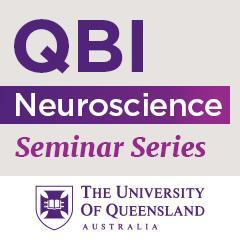Dr James Daniel, Germany : "Wrestling with SUMO at the synapse"
Speaker:
Dr James Daniel
Molecular Neurobiology Group, Max Planck Institute of Experimental Medicine, Göttingen 37075, Germany
Title: "Wrestling with SUMO at the synapse"
Abstract:
Chemical synapses contain an enormous array of proteins that facilitate their ability to secrete neurotransmitters and respond to the ever-changing external environment of an organism through the process of plasticity. A key mechanism by which synaptic function and plasticity is regulated is post-translational modification of proteins. In cells, the post-translational modification of proteins by covalent conjugation of small ubiquitin-like modifiers (SUMOs) is a key mechanism of protein function regulation. In the last decade, conjugation of the SUMO isoform SUMO1 to proteins at synapses has been proposed as critical to various aspects of synaptic function. However, the published evidence for SUMO1-conjugation at synapses is contradictory, with some papers providing qualitative data that SUMO1 is not present at synapses. In an effort to resolve this controversy, we conducted a thorough analysis of whether SUMO1-conjugated proteins are present at synapses, using genetically modified mouse models, stringent biochemistry and confocal microscopy. We first focused on seven proteins that had been proposed in previous studies as targets of SUMO1 modification at synapses, using a knock-in reporter mouse line expressing SUMO1 tagged with both His6 and HA. For all seven proteins we report no biochemical evidence of SUMO1 conjugation, either in His6-HA-SUMO1 knock-in mice or WT mice. We next examined the presence of SUMO1 at synapses using subcellular fractionation of brain tissue and quantitative immunocytochemistry in cultured neurons. Neurons from mice lacking the SUMO1 protein (SUMO1KO) were included as an essential negative control to ensure antibody specificity. Quantification of anti-SUMO1 immunolabelling showed no specific anti-SUMO1 immunolabelling is present at synapses using two independent methods of quantification. Overall, our findings indicate that SUMO1-conjugation of synaptic proteins does not occur or is very rare and hence not detectable using current methodology. These data bring into question the notion of widespread regulation of synaptic proteins by SUMO1 modification, and highlight the importance of using robust tools for identifying SUMO1 substrates to faithfully elucidate the role of SUMO conjugation at synapses.
About Neuroscience Seminars
Neuroscience seminars at the QBI play a major role in the advancement of neuroscience in the Asia-Pacific region. The primary goal of these seminars is to promote excellence in neuroscience through the exchange of ideas, establishing new collaborations and augmenting partnerships already in place.
Seminars in the QBI Auditorium on Level 7 are held on Wednesdays at 12-1pm, which are sometimes simulcast on Zoom (with approval from the speaker). We also occassionally hold seminars from international speakers via Zoom. The days and times of these seminars will vary depending on the time zone of the speaker. Please see each seminar listed below for details.



